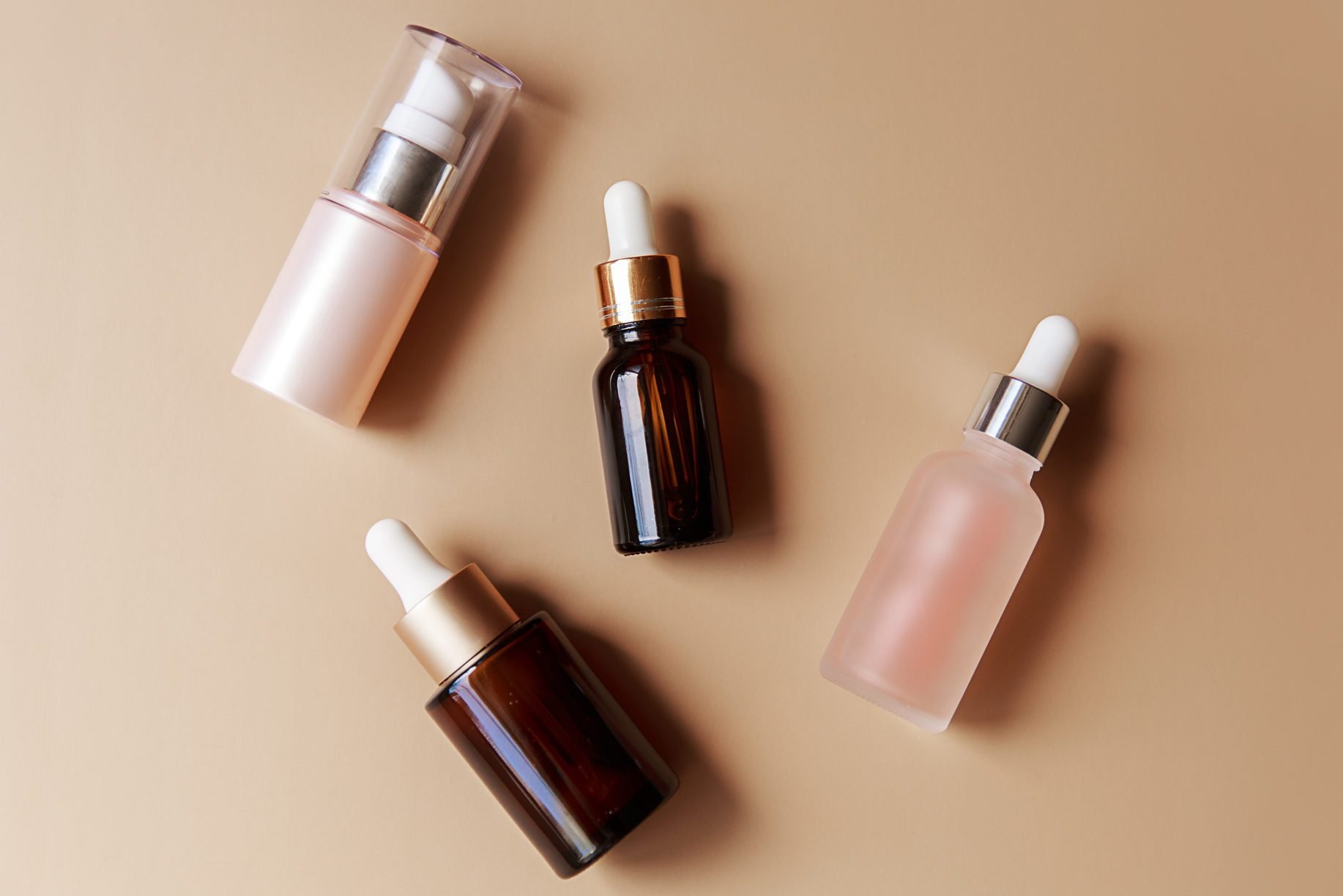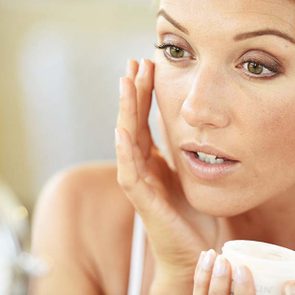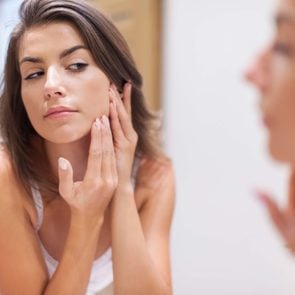What to Know About Peptides in Skin Care
Updated: Apr. 06, 2021
Peptides are a hot trend, but can they really give you plump, glowy skin? Dermatologists weigh in on whether they can help wrinkles and other skin issues, and what to look for in beauty products.
Peptides are everywhere
Peptides seem to be everywhere in the skin care industry. Look on the label of any fancy skin care product, and you’ll likely find them listed in the ingredients. They’re popping up in creams, serums, sprays and more.
So will they make you glow like J. Lo—or at least her distant, almost-as-glowy cousin?
While several dermatologists we interviewed say the results will vary from product to product, there is some research pointing to the efficacy of peptides, which also naturally occur in the skin.
Why? One word: collagen, the secret behind younger, firmer, brighter skin.
What are peptides?
Peptides are strands of linked amino acids, which are the building blocks of protein in the skin. The big three skin proteins are collagen, elastin, and keratin. As we age, we naturally lose all three. That’s often when topically applied peptides are called in for backup.
But Harold Lancer, MD, a Beverly Hills dermatologist who works with Beyonce and Kim Kardashian, says not all peptides are created equal.
“Their value is dependent on how they are formulated,” he says. “Ingredients and chemistry need to be high quality and provide the right characteristics to make healthier and younger tissue.”
And that’s where things get murky. It can be hard to determine ingredient quality from a beauty product label.
The peptide-collagen connection
“Introducing peptides into your skin care routine is a great way to increase collagen levels, as collagen is made up of three peptide chains. So using peptides induces the body to produce more collagen,” says Howard Sobel, MD, founder of Sobel Skin and attending dermatologist and dermatologic surgeon at Lenox Hill Hospital in New York. “Peptides are often found in many skin care products because they easily absorb into the skin.”
However, there isn’t much research that backs up the claims (get ageless skin!) found on beauty product labels.
“There isn’t much reliable science in this area,” says Brandith Irwin, MD, a Seattle-based board-certified dermatologist. “Most of the studies were done by the drug and cosmetic companies who make the peptides and skin care products.” In scientific research, such funding creates a conflict of interest.
Many studies were conducted on only a small number of people, like a study that appeared in 2019 in the International Journal of Molecular Sciences. Researchers tested the efficacy of peptides on excised (removed from the body) human skin and on actual human subjects.
They found that upon applying peptides to the excised skin surface, collagen production improved. Next, they studied 22 healthy Asian females aged 40 and above. After two weeks of twice-daily topical applications, they found “improvements in skin wrinkles” for five facial areas including crow’s feet, frown lines, and forehead lines.
Peptides can also build up the skin barrier, which are the protective outer layers of the skin. The skin barrier protects from bacteria, pollution, UV rays, injury, and more.

How to pick products
First things first: Know how to spot peptides in your products. The most obvious way is by looking for the word peptide in the title. But you can also find it in the ingredients—look for “palmitoyl” on the label or words ending in “peptide.”
“The two main ones to look out for are hexapeptides, which brighten skin, and tetrapeptides, which boost elasticity and firmness,” Dr. Sobel says.
Next, consider which products will give you the biggest bang for your buck. While you might find peptides in face wash, for instance, its format—rub on, rise right off—doesn’t offer the most benefits.
“Peptides as a serum or a cream will work better and deeper for skin versus as a cleanser,” says Dr. Sobel. “The peptides need to sit on your skin in order to properly send the signal to your body for them to start working.”
How do you choose the best brand peptide product?
“It’s better to choose a skin care brand that includes peptide ingredients in the entire product line versus one that has peptides as an ingredient in one product as a one-off and that isn’t part of a cohesive skin care routine,” says Dr. Lancer. “This is important because all the peptides will activate one another and work together as a team.”
Use alongside proven anti-agers
Without much research backing claims of their benefits, peptides aren’t a solid choice for your primary skin treatment. But they can be a nice add-on to your skincare regimen.
“Many of the products I do recommend have peptides in them as secondary ingredients, in which case they may be helpful,” says Dr. Irwin. “Retinol and its prescription form, tretinonin, is the gold standard still for anti-aging and skin cancer prevention, with 20-plus years of science. Alpha-hydroxy acids (AHAs) also have a ton of science behind them and also help reduce fine lines and are particularly helpful for acne, oily skin, and larger pores.”
Dr. Sobel cautions against using peptides and AHAs at the same time because it can cause irritation. They play well with other skin care ingredients though.
“Peptides work well alongside ingredients including hyaluronic acids, vitamin C, niacinamide—but don’t mix a vitamin C and a niacinamide together—and other such antioxidants,” Dr. Sobel says.
Dos and don’ts
In your hunt for more collagen, you may encounter oral collagen supplements. Dr. Irwin notes that most are made from ground-up cowhide, so if you’re a vegetarian or vegan, pay special attention to ingredient lists—or skip altogether.
“I recommend just taking a good-quality protein supplement.” Whey or vegan-friendly supplements are good options.
And if you’re into medical anti-aging treatments, look at peptides as a complementary addition to your beauty maintenance routine, not a supplement. “Peptides may not be as effective as other routes for anti-aging and wrinkle reduction such as Botox, laser, or other tightening treatments,” says Dr. Sobel.




















